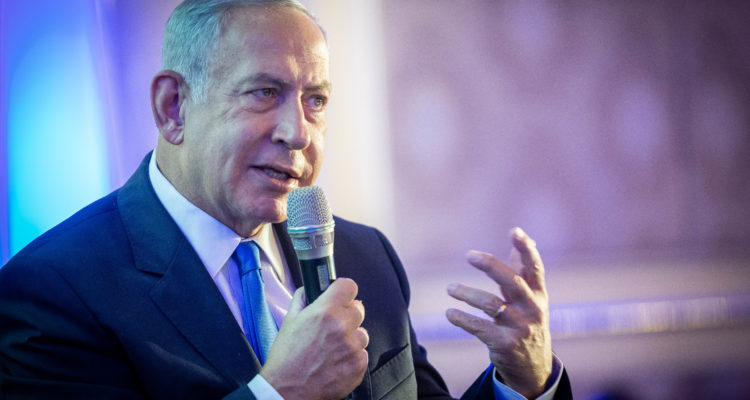The issue of Iran was “the primary reason, the real reason, and the first reason” for the prime minister’s return to Israeli politics, he told U.S. Jewish leaders. Second was the Abraham Accords
By JNS
In an address Sunday evening in Jerusalem to the Conference of Presidents of Major American Jewish Organizations Sunday evening, Prime Minister Benjamin Netanyahu spoke about the Iranian threat, which he described as the main priority as a nuclear Islamic Republic puts Israel and the world at risk.
Netanyahu said there was a “growing understanding” not only between the U.S. and Israel, but also internationally, of the danger that Iran poses to world peace.
The prime minister confided to the audience that the issue of Iran was “the primary reason, the real reason, and the first reason” for his return to Israeli politics.
The second reason for his return was to deepen the ties between the signatories of the Abraham Accords, the peace agreements signed between Israel and several Muslim countries in 2020, and to expand them to other Muslim states.
Netanyahu recalled that the success of the accords depended on overcoming an assumption held by “foreign policy elites” that peace with Arab countries in the region could only be achieved by first making peace with the Palestinians.
But the “dysfunctionality” of Palestinian politics made that impossible. “I always thought that the way the way we should act is not inside out but outside in, because of the dysfunctionality,” he said.
“That meant that if we waited for [the Palestinians], we’d wait forever. And that’s why I thought that we should go around and get to the Arab world. And the reason we could get to the Arab world is because they, too, recognize the primacy of the Iranian threat,” he said.
Netanyahu said he wanted to expand the Abraham Accords, in particular to Saudi Arabia. “A form of peace with Saudi Arabia will be a quantum leap because I think it will change Israel’s relationship with the rest of the Arab world. It will lead to the effective ending of the Israeli-Arab conflict.
“I think it will be a historic turning point, at least as big as the Abraham Accords, as big as Camp David [the 1978 accords with Egypt that led to the peace treaty the following year], and I think it would launch a historic change in Israel’s position in the Middle East,” he said.
“This is a goal that we’re working on in parallel with the goal of stopping Iran. The two are in many ways intertwined,” Netanyahu said.
The prime minister also mentioned the controversy regarding judicial reforms but could not say much because of a gag order.
“I’d like to speak to you on it at length and to tell you why you shouldn’t worry. But for the moment, I’m prevented from doing that because I’ve been given a gag order,” Netanyahu said.
But no matter the outcome, Israel will remain a democracy and there will be no civil war, he said.
World Israel News contributed to this report.





